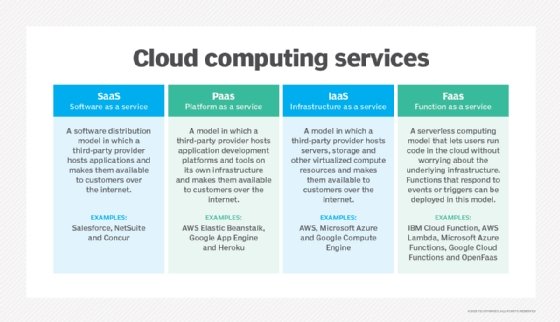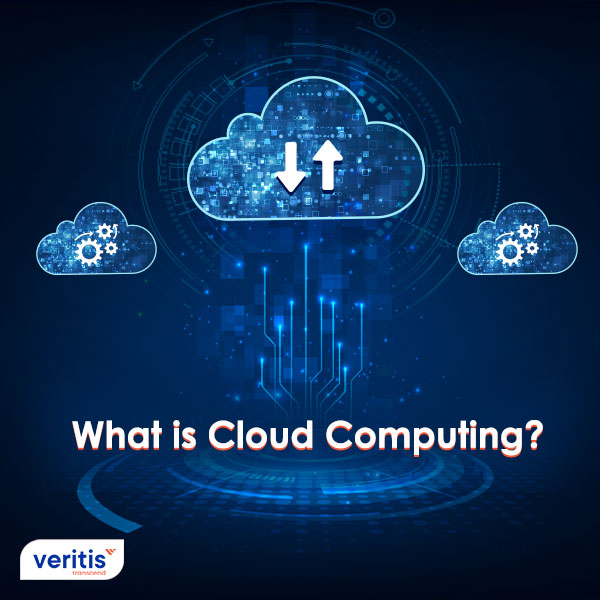Secure Your Data: Dependable Cloud Solutions Explained
In an age where data breaches and cyber threats impend huge, the demand for durable data safety and security steps can not be overstated, especially in the realm of cloud solutions. The landscape of trusted cloud solutions is progressing, with file encryption techniques and multi-factor authentication standing as columns in the stronghold of sensitive information. However, beyond these fundamental components lie elaborate strategies and cutting-edge modern technologies that lead the way for a much more safe cloud environment. Understanding these subtleties is not merely an alternative however a necessity for people and organizations seeking to navigate the electronic realm with self-confidence and durability.
Significance of Information Security in Cloud Solutions
Ensuring robust information security steps within cloud solutions is paramount in protecting delicate details against prospective hazards and unauthorized gain access to. With the raising dependence on cloud services for keeping and processing data, the need for rigid security procedures has become more critical than ever before. Data violations and cyberattacks present considerable risks to organizations, bring about monetary losses, reputational damages, and lawful ramifications.
Executing strong verification devices, such as multi-factor verification, can aid prevent unapproved access to cloud information. Routine protection audits and susceptability evaluations are additionally necessary to recognize and attend to any powerlessness in the system without delay. Enlightening employees concerning finest methods for data safety and security and applying rigorous access control plans additionally improve the total safety and security position of cloud solutions.
Moreover, conformity with market laws and standards, such as GDPR and HIPAA, is important to guarantee the defense of sensitive information. Security techniques, protected information transmission protocols, and information back-up procedures play vital roles in safeguarding info stored in the cloud. By prioritizing data protection in cloud services, companies can develop and mitigate threats trust with their customers.
Security Methods for Data Security
Effective information defense in cloud solutions counts heavily on the implementation of durable security strategies to secure delicate information from unauthorized accessibility and prospective safety violations. Encryption involves transforming data into a code to stop unapproved individuals from reading it, ensuring that even if information is intercepted, it continues to be indecipherable. Advanced Security Criterion (AES) is widely utilized in cloud services due to its stamina and reliability in protecting information. This strategy makes use of symmetrical vital encryption, where the same key is used to secure and decrypt the data, ensuring secure transmission and storage.
Additionally, Transport Layer Safety And Security (TLS) and Secure Sockets Layer (SSL) procedures are typically employed to encrypt information throughout transportation between the cloud and the individual server, giving an additional layer of safety and security. File encryption crucial administration is essential in preserving the integrity of encrypted information, making certain that tricks are firmly kept and managed to protect against unapproved accessibility. By implementing strong encryption strategies, cloud company can boost data security and impart depend on in their customers regarding the safety and security of their information.

Multi-Factor Verification for Improved Security
Structure upon the structure of robust encryption techniques in cloud services, the implementation of Multi-Factor Authentication (MFA) works as an extra layer of safety and security to boost the security of delicate data. MFA calls for customers to provide two or Get More Information even more types of confirmation prior to granting access to their accounts, making it substantially harder for unauthorized people to breach the system. This authentication method normally entails something the individual understands (like a password), something they have (such as a mobile tool for obtaining confirmation codes), and something they are (like a finger print or facial acknowledgment) By integrating these variables, MFA minimizes the my review here risk of unauthorized access, even if one factor is compromised - Cloud Services. This added security action is crucial in today's digital landscape, where cyber threats are progressively advanced. Implementing MFA not just safeguards information yet also enhances customer self-confidence in the cloud company's commitment to data security and personal privacy.
Information Back-up and Calamity Recuperation Solutions
Information backup includes creating duplicates of data to guarantee its availability in the occasion of data loss or corruption. Cloud solutions provide automated backup choices that routinely conserve data to safeguard off-site servers, reducing the danger of data loss due to equipment failings, cyber-attacks, or individual mistakes.
Regular testing and upgrading of back-up and disaster recovery plans are necessary to guarantee their performance in mitigating data loss and minimizing disruptions. By executing trusted data backup and disaster recuperation services, companies can improve their information safety stance and keep organization connection in the face of unpredicted events.

Conformity Specifications for Information Privacy
Given the increasing focus on information defense within cloud solutions, understanding and adhering to compliance standards for information personal privacy is extremely important for companies running in today's electronic landscape. Compliance standards for information personal privacy include a set of standards and regulations that companies have to comply with to guarantee the protection of delicate info kept in the cloud. These standards are made to safeguard information versus unauthorized accessibility, violations, and misuse, thereby cultivating count on between organizations and their consumers.
One of one of the most well-known conformity standards for information personal privacy is the General Data Defense Policy (GDPR), which puts on organizations managing the personal data of people in the European Union. GDPR mandates rigorous requirements for information collection, storage space, and processing, imposing significant penalties on non-compliant businesses.
Furthermore, the Medical Insurance Portability and Liability Act (HIPAA) establishes standards for securing delicate patient health and wellness details. Adhering to these conformity standards not only assists companies stay clear of legal repercussions however additionally shows a commitment to data personal privacy and security, enhancing their credibility amongst consumers and stakeholders.
Conclusion
In final thought, making sure additional reading information safety in cloud services is extremely important to safeguarding sensitive info from cyber dangers. By carrying out durable security strategies, multi-factor verification, and dependable data backup services, organizations can reduce risks of data breaches and maintain conformity with information personal privacy criteria. Sticking to ideal techniques in information safety not only safeguards important info but also fosters trust with stakeholders and consumers.
In a period where information breaches and cyber threats impend huge, the requirement for robust data security actions can not be overemphasized, particularly in the realm of cloud solutions. Applying MFA not just safeguards data but additionally improves individual confidence in the cloud solution supplier's commitment to information safety and privacy.
Data backup entails producing copies of information to ensure its schedule in the occasion of data loss or corruption. cloud services press release. Cloud services supply automated backup options that consistently save information to protect off-site servers, lowering the danger of information loss due to hardware failings, cyber-attacks, or individual mistakes. By carrying out robust file encryption techniques, multi-factor verification, and reputable information backup services, companies can reduce risks of data violations and preserve conformity with data personal privacy standards